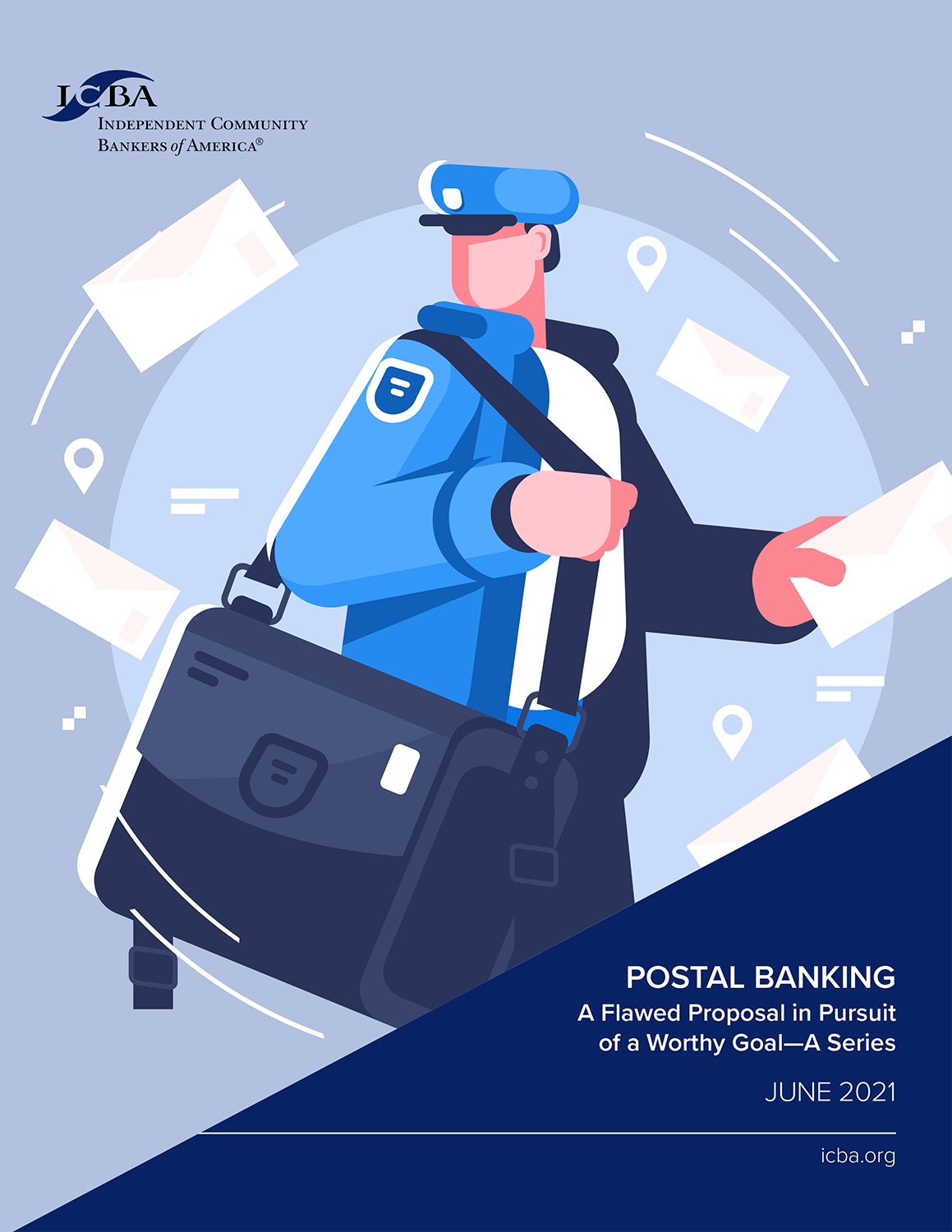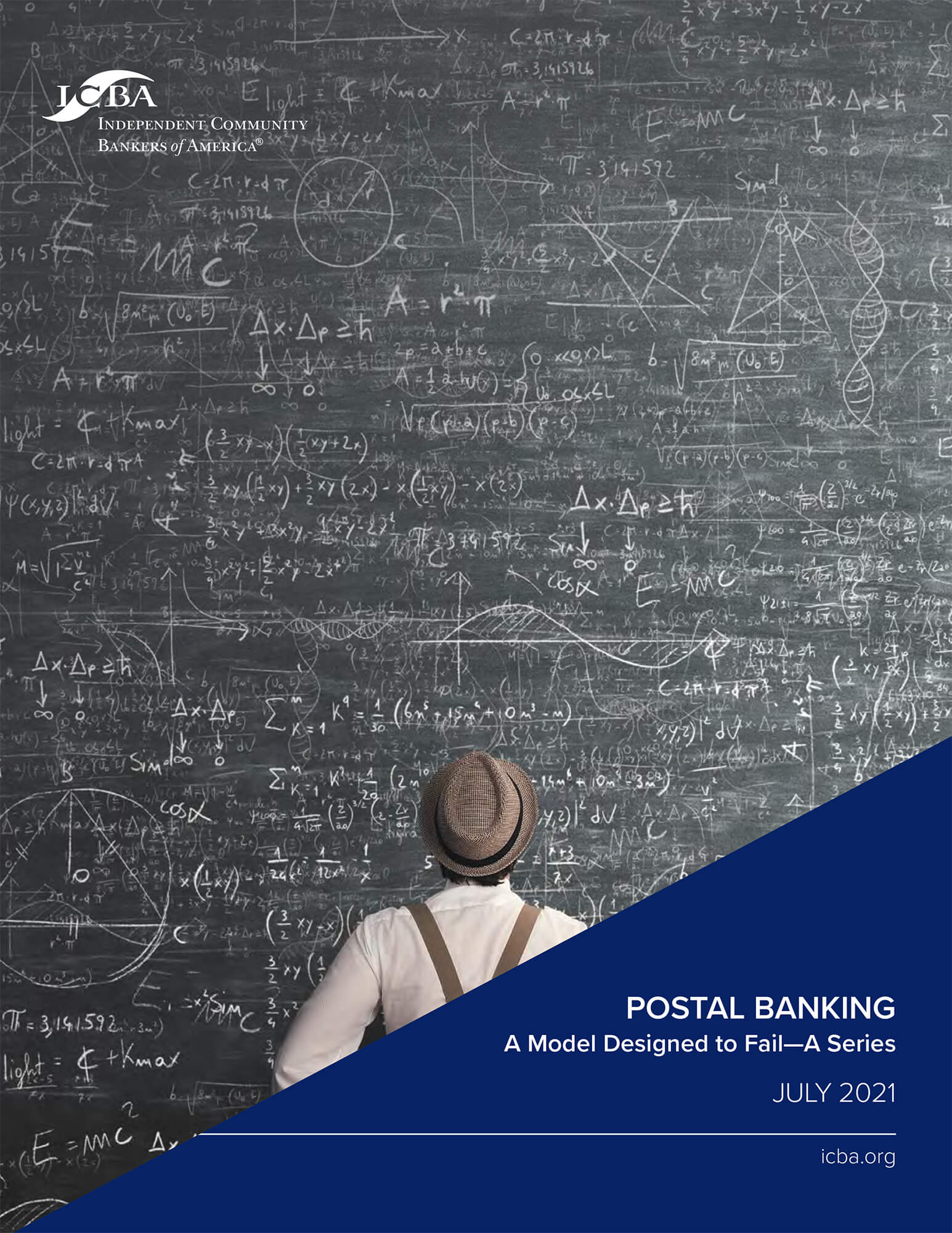When autocomplete results are available use up and down arrows to review and enter to select.
Postal Banking. There has been a resurgence in interest among certain lawmakers in allowing the United States Postal Service (USPS) to offer retail banking services. In 2021, the USPS quietly launched an ICBA-opposed pilot to offer check cashing, bill paying, ATM access, and expanded money orders and wire transfers in Washington, DC; Falls Church, VA; Baltimore, MD; and the Bronx, NY. USPS reported that, across all locations, just six checks were cashed for a total value of $548.46, resulting in just over $35 in revenue for the cash-strapped USPS.
It would be a serious mistake for the USPS to enter a highly competitive, complex new industry with the potential to ruin itself and its core function and put American taxpayers at further risk. Effective banking management requires years if not decades to master.
FedAccounts. Proponents would make “FedAccounts” available to all citizens, residents, and nonfinancial businesses at taxpayers’ expense. These accounts would offer the same services as commercial bank accounts including the issuance of debit cards, ATM access, direct deposit and online bill pay services. They would also support internet and mobile banking.
These features put FedAccounts in direct competition with checking and savings accounts offered by community banks. Moreover, the possibility that such accounts could be used by the government to track an individual’s financial transactions creates serious privacy concerns.
The Fed has repeatedly said it is not suited to offer direct accounts to consumers and is not legally permitted to do so. For instance, proposals for no-fee FedAccounts would not provide for adequate cost recovery as required by the Monetary Control Act.


